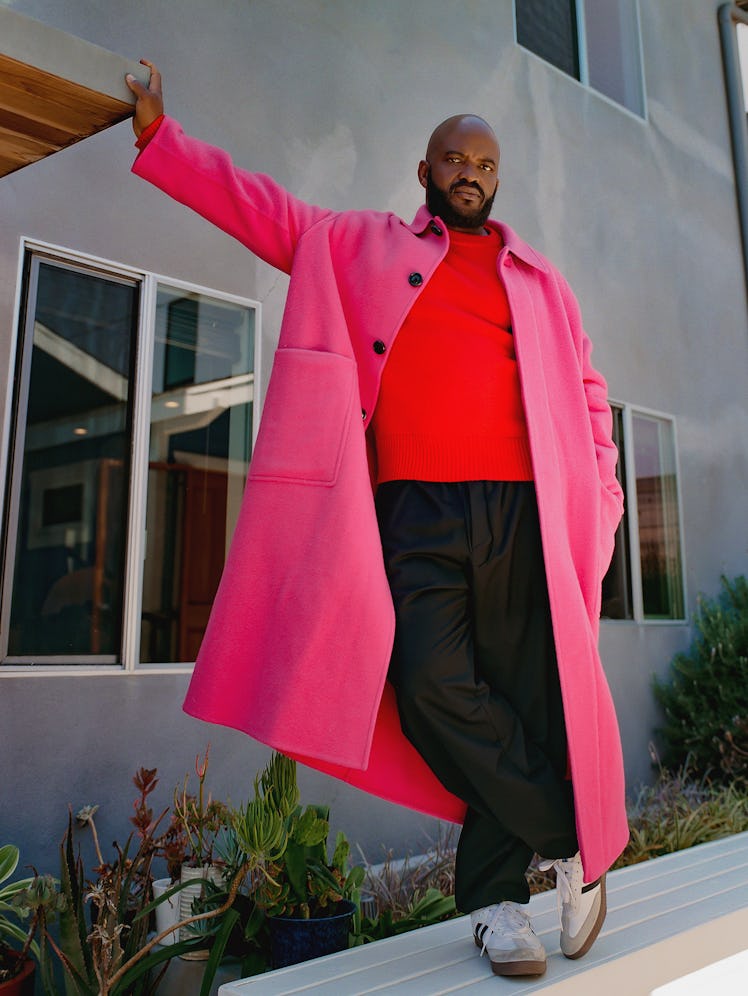For W’s annual The Originals portfolio, we asked creatives—pioneers in the fields of art, design, fashion, comedy, activism, and more—to share their insights on staying true to themselves. See this year’s full class of creatives here.
For most of the past two decades, you’ve been known as a TV host, covering the Winter X Games on ESPN and the summer Olympics on NBC. Then, in 2018, you joined Mami Wata, a South African surf and lifestyle label, which you recently left to start your own brand, Alekesam.
Before I got on TV, I was working for surfing brands. As a young person, I aspired to get into the surf, snowboard, and skateboard industry. Being a pro athlete in this space would have been the ultimate, but I started too late and didn’t have the skill set, so I thought, How do I stay close to this? I was always curious about what a brand would look like in the surfing space that was specifically African. I started surfing in South Africa in the 1990s, when my father [the South African jazz icon Hugh Masekela, known for his anti-apartheid songs such as “Soweto Blues”] was able to go back after his 30 years of exile, and I very much fell in love with it. When I met the Mami Wata team and I saw what they were doing, I thought, This is the first time that a surf brand could really make the jump and help to redefine what surf culture looks like.
Earlier this year, Mami Wata opened its first brick-and-mortar store in the U.S., a pop-up on Abbot Kinney Boulevard in Los Angeles. Opening on L.A.’s shiniest surf strip is a big deal for a small surf brand.
The idea of building a bridge between the West and the African continent has always been on my mind. It’s my hope that this brand and narrative can help create curiosity and expand what the idea of surf culture looks like globally.
Who was the first person who made you realize you could break the rules?
My dad was the OG rule breaker. He had no desire to be safe. He broke rules with his music and by speaking up for those who didn’t have a voice or platform. Having that example while also having him as a best friend was very powerful for me.
Who would you consider an original?
Kendrick Lamar. I’ve been listening to his new album nonstop. He isn’t trying to make the same album he made 10 years ago, and with each album, he chooses to be very bare and to almost negate some of the things that he showed us about who he was an album or two ago, because of growth. To be raw and open about that is inspiring to me.
What did you grow up listening to?
I was into really smart pop music, a bunch of soul music, hip-hop, and then the music of the world that my dad exposed me to. I’m a child of the birth of hip-hop in the late ’70s, early ’80s, so that was huge for me. I also grew up listening to a lot of the classics—Stevie Wonder, Smokey Robinson, Bill Withers—as well as South African music and the Brazilian classics.
What do you consider the most important elements of your life?
I am influenced by nature, the ocean, and the mountains. Also, I like being able to sit around a table with old and new friends, have hours go by in exchange, and leave a dinner table with my worldview sharpened.
Grooming by Carla Perez for Kiehl’s; stylist assistant: Clara Molina.
